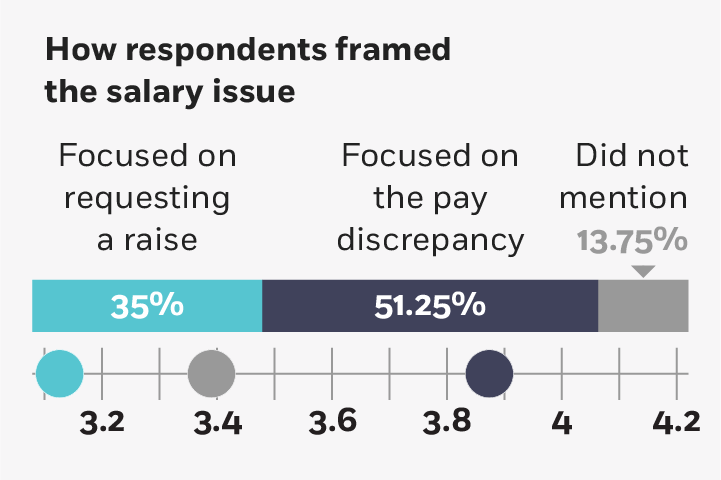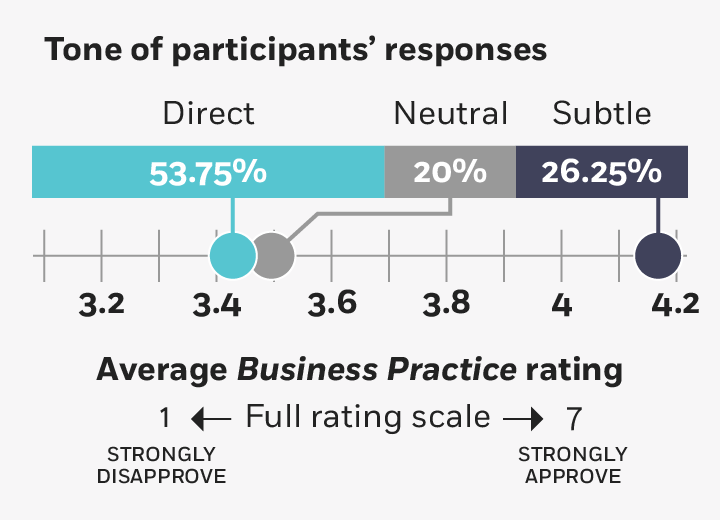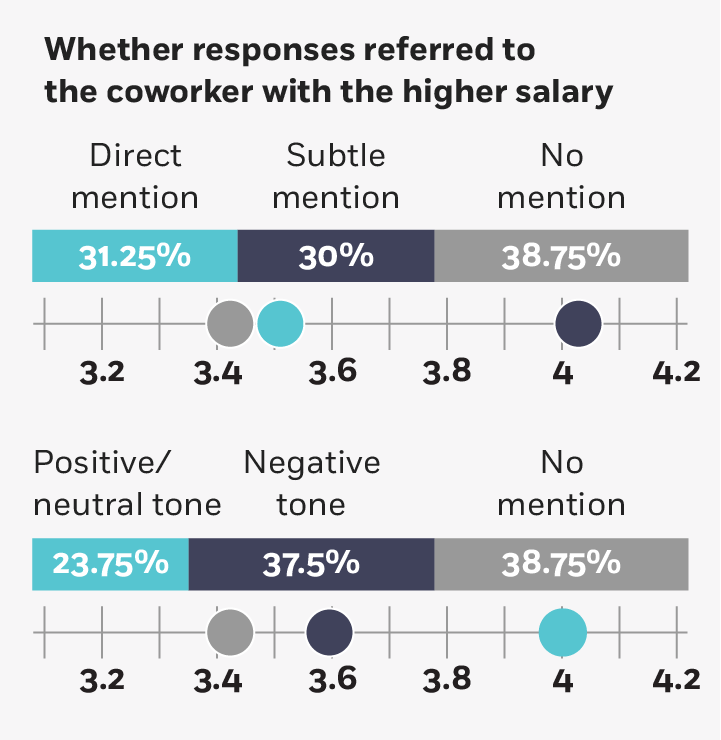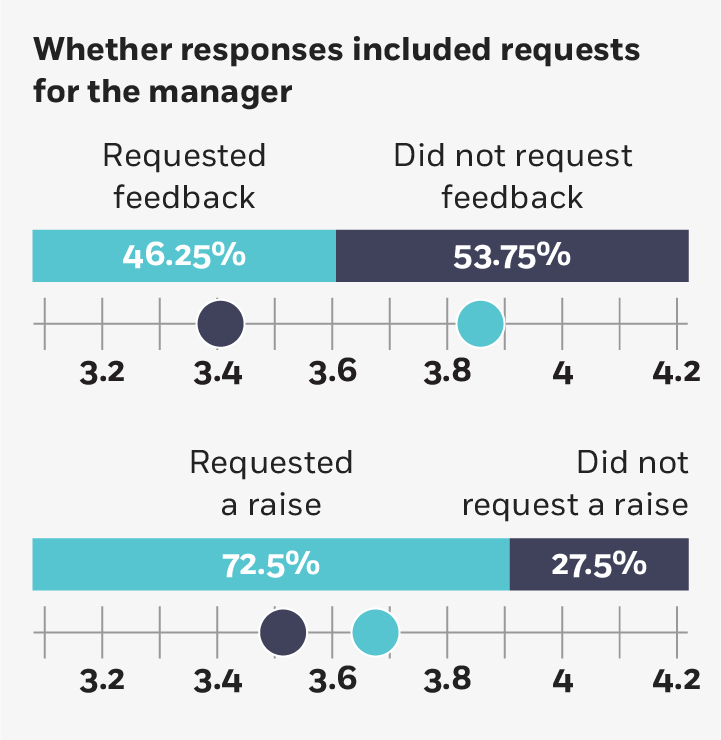
What Are We Learning When We’re on Social Media?
Research explores how algorithms influence our social perceptions.
What Are We Learning When We’re on Social Media?
Joey Guidone
The fifth installment of our quarterly Business Practice feature involves a perceived salary inequity:
Your coworker Robert is a great guy and a very good analyst—you’ve known him since you started together at McFarland Media several years ago. He recently made a casual reference to his salary, and to your dismay, it’s 20 percent higher than yours. He’s good, but as far as you’re aware, his career path has more or less mirrored your own. You started at the same time, in the same role, and neither of you has received a formal promotion since.
This revelation is eating at you, so you’ve tried to divine some reasoning for it by comparing your performance to what you can observe of Robert’s. But on any measure you can think of, your performance isn’t notably different. In fact, your manager recently gave you some encouraging feedback on your work. At wit’s end, you’ve requested a special one-on-one with her this afternoon. But what do you say? Write a script.
Business Practice has already explored what to do when a potential employer asks you about your current salary. But for most of us, negotiating a raise is even trickier than bargaining for an initial salary, because you generally have less leverage when you are already on the job than when you are being recruited to join a company.
Negotiating a pay increase is aversive for most of us, even under the best of circumstances. A survey conducted by the compensation-data website PayScale found that 57 percent of respondents have neverrequested a raise. The PayScale study identifies two big reasons for this: discomfort with negotiating salary and fear of being perceived as pushy. Not surprisingly, women respondents were even less likely to ask for a raise, a result consistent with well-documented gender differences in negotiation.
Words matter. The first year I taught negotiation, I ran into one of my students in the cafeteria. After a few minutes of small talk, she asked me: “What qualifies you to teach negotiation?” Ouch. I believe that she meant to ask: “Negotiation is an interesting class to teach. How did you come about teaching this class?” Words matter.
Preparation matters too. The “what qualifies you” question is one I did not anticipate, especially in my early days as a professor. But years later, I’ve heard many questions—straightforward, incisive and cutting, sincere but naive, tricky and lined with booby traps, difficult to answer, and just plain bizarre. I’ve encountered them in class, while talking about my research, and in dealing with students, faculty, and staff members at Booth. I’ve learned to reflect on conversations I’ve had that have gone poorly or well, or, most likely, a bit of both; to anticipate what questions I will be asked; and to prepare for an upcoming conversation by scripting words and simulating how others will respond.
Business Practice is a new quarterly series designed to help you better deal with challenging conversations. It is a partnership between Chicago Booth Review and the Harry L. Davis Center for Leadership, of which I am the faculty director.
We built these elements into Business Practice:
The inspiration for this series comes from my friend and former PhD student, Cade Massey, a Booth graduate who is now a professor at the University of Pennsylvania. Over the years, Cade and I, like all negotiation teachers, have been bombarded by requests for advice on how to deal with difficult negotiation situations. We do our best to answer these questions with students one-on-one. Why not be more efficient and systematic and discuss these in class? And, perhaps more important, why not help students learn from these encounters and come up with a better answer for themselves? So, in my class, I have students script responses to five difficult negotiation questions. “Scripts,” as I call this part of class, has consistently been one of the most popular elements of my Advanced Negotiations course.
Students in my negotiations class learn by seeing the wide range of student responses—some very different in style and strategy, some identical in intention yet executed very differently. Students also rate responses in real time, giving letter grades ranging from A to F. Students are often shocked to see the broad range of ratings for the same response—it is not uncommon for a response to elicit an impassioned A and an equally vociferous D.
That’s why the crowdsourcing of ratings in Business Practice is especially valuable. The readers of Chicago Booth Review are a sophisticated bunch. They reflect a wide range of perspectives, interpersonal styles, experiences, and culture. Tons of research in social psychology has documented our tendency to be egocentric in our predictions: I choose a response because it is appealing to me, and hence I expect it to be effective with others, some of whom may think like me but many of whom will not. Learning to step out of our shoes and into the shoes of the many others we may encounter is an extraordinarily useful skill.
Needless to say, difficult situations are not confined to negotiation; they are part of daily organizational life. That’s the impetus for Business Practice. We look forward to helping you prepare for the difficult situations in your own professional life—just as you, through your feedback, will help others prepare for theirs.
The perceived gap between your salary and Robert’s provides an impetus for having a conversation with your manager. Short of an outside offer, there isn’t much better ammunition for a salary conversation than unequal pay for equal performance. However, on top of the usual uneasiness with asking for more money and fears of being perceived negatively, there are some additional considerations: Maybe Robert isn’t actually being paid more than you? Perhaps you misunderstood what Robert said, or, for some reason, Robert wasn’t telling the truth. Or there might be a good reason for the salary discrepancy that you don’t understand. What if, contrary to what you’ve been thinking all along, Robert is actually a better performer than you are? Yikes.
We posted this scenario on July 1, 2019, and closed the survey on July 16, 2019. We received 88 responses, with the responses ranging in length from 3 to 391 words, with a median length of 78 words. The responses were rated 1,173 times. Each response was rated on average 13.3 times (median: 12) with 48 responses (55 percent) receiving 10 or more ratings. (The infrequently rated responses were submitted late in the cycle, close to when the survey was closed.)
Responses were rated on a 1 (“Strongly disapprove”) to 7 (“Strongly approve”) scale. A histogram of all ratings is shown below.
The mean rating was 3.65, a bit below the middle of the scale. As tends to be the case for Business Practice scenarios, this one is challenging, and doesn’t lend itself to easy answers.
We next turn to the average rating of each response submitted. The analysis below is restricted to the 48 responses with 10 or more ratings. The histogram below plots the average rating for each of these responses. The average rating across all responses was 3.66, with responses ranging from the worst-rated response (2) to the best-rated response (4.88).
For the fifth straight time, female responses (3.65) were rated higher than male responses (3.59). The difference, however, is small and not statistically significant.
To give you a sense of the range of ratings, I’ve listed a few responses spanning the range from unfavorably rated (5 percent, 10 percent, and 25 percent in the distribution, meaning that 95 percent, 90 percent, and 75 percent of responses were rated better), to average (50 percent in the distribution), to favorably rated (75 percent and 95 percent in the distribution). All of these responses had 10 or more ratings.
Answer: “I need to talk about my salary. I’ve often heard that making major adjustments to bring people’s salaries in line with one another for the same type of work can be like moving mountains, but I feel like I have to start somewhere.
“I’m gonna go ahead and name names here. I was talking to Robert the other day, and he casually mentioned what he’s making. Assuming what he said is true, it’s wayhigher than where I’m at, and I have to say that I just don’t get it.
“Now, I’m not trying to knock him down at all, and I know that you and I can’t really get into details about other employees’ personal situations. But what I do know is that he and I started at about the same time, in the same role. And as far as I can determine, his career path is not much different from mine.
“I’m sure there’s more to the story than that, and I’m not necessarily trying to pit myself against him. So my question is: What can I do to get to that salary level? You recently gave me some feedback on my work that felt encouraging, so I feel like I’m in a pretty good place here. Can we talk about my trajectory?”
Answer: “Manager, I enjoy my role here. I am proud of the work I have done, have received positive feedback, and know it has contributed to the bottom line.
“I know employees are coming in from different backgrounds and pay rates, though I would hope that you review pay across similar positions on a regular basis to ensure pay across like roles and talent are in line. Do you do this? If not, I’d like to request a pay review to ensure my pay is in line with comparable colleagues, as I’m concerned that my pay is undervalued relative to my colleagues and would like to request it be reviewed and adjusted. Could you do this?
“Thanks.”
To examine more systematically which elements lead to more favorable evaluations, I coded the responses on various dimensions:
Responses that used subtle language and focused on discussing the pay discrepancy rather than demanding a raise were rated higher.




Business Practice crowdsources ratings of responses from individuals who have scripted a response of their own—and usually have just finished doing so. Although this design is pragmatic and useful in many ways, there are two obvious shortcomings with this approach. First, it requires that respondents initially embody the role of the employee and then switch into manager mode to assess other responses. It may be hard for some respondents to shake that initial role for the one of manager, the person whose judgment ultimately matters. Psychological research studies, including some by my Booth colleagues Ayelet Fishbach, Nicholas Epley, and Emma Levine, have documented frequent and sometimes substantial differences in perspective taking between one role and another. Second, your manager is likely to have different information than you. In this case, your manager knows what you and Robert are actually paid, how the two of you have actually performed, the cause of the pay disparity, if there is one, etc.
To address these issues, we took responses for which we had permission to conduct further research and created a second set of raters using 331 paid participants from Amazon’s Mechanical Turk. We divided raters into four groups, in each case providing them with a different background scenario to understand the situation.
These scenarios were not intended to be comprehensive, but they nevertheless span a relatively broad range of possible organizational realities.
Those who rated through MTurk shared largely consistent views of the responses with those who rated through the Chicago Booth Review website. In other words, both groups tended to agree on which responses are the strongest and which are the weakest.
Intuitively, however, some responses work well in some cases, but may be disastrous in others. Consider the following response: “I would like a salary increase. I’m a very good analyst, my performance is excellent, and I feel it would be fair. This is what I would like to discuss with you.” This response is direct and presumes that your performance is equal to Robert’s. This response was rated relatively well when raters were told that Robert lied (4.8; Scenario 1). However, the evaluation was predictably much worse (2.5) when raters were told that the employee’s performance was not as strong as Robert’s.
Perhaps all responses are “tuned” to work well for some realities and poorly for others? This isn’t the case. Other responses are more robust, scoring well across all scenarios. One example is the second-highest rated response. (See “Top-rated responses” below.) This response averaged 5.44, 5.3, 5.57, and 5.33 across the three scenarios, a relatively narrow range of 0.27 points. In general, the responses most highly evaluated by Business Practiceparticipants also were rated positively across all four scenarios by our MTurk raters. In contrast to stock-market investments, the best responses have high return andlow risk, and some of the worst responses have the opposite profile!
Now for the top three responses, as rated by Business Practice participants! I’ve listed names and background when I’ve gotten permission to do so. All responses included in this article were subject to light editing for grammar and style.
Response: “Thanks for taking the time to meet with me. Recently, another member of the team shared information on his salary, and I noted that it is approximately 20 percent higher than mine. As far as I can tell, the two of us are comparable on experience, tenure, and performance, and I would like to request a parity raise to bring my compensation to an equitable level.
“Would you be willing to discuss this, and consider advocating for a parity raise with leadership and HR? I have prepared an overview of my work at the company, as well as some industry salary comparisons and a fresh CV. If there are additional considerations you’d like to take into account, I would be happy to hear them.”
Response: “I would want to start by framing my inquiry as a check-up on my job performance, rather than a complaint about my salary. My question isn’t, ‘Why aren’t I getting paid more?’ but rather ‘Am I doing as well as I think I am?’ So with that in mind:
“‘I learned recently that there are members of our team—whose job responsibilities and performance aren’t obviously different from mine—whose compensation is significantly higher than mine. I wanted to speak with you to determine whether that was an indication that there are problems with my work that we haven’t discussed. What do I need to work on in order to be regarded, and compensated, as one of the high performers on our team?’”
Response: “Before—Think about what it would take for you to feel as if your job were compensating you fairly. Think long-term. Know what you want. Know how you feel. Are there other perks? Is this role laying the foundation for even better opportunities? Is it all about the money? Have a plan in mind to get you where you want to be.
“During—Be direct. ‘I’ve been in role X for X years. My reviews are consistently favorable. And I’ve recently become aware that similar roles pay more in this industry and I’d like to bring my compensation up to that level. Can we make a plan to get me there?’
“After—Be prepared for an answer you don’t want to hear. Be prepared to work the plan you asked for.”
Thanks for these responses! Each of these respondents will receive a Business Practice coffee mug. Display it proudly!
This scenario offers the kind of frustrating ambiguity that exists in many professional situations. Is Robert really paid better than you are? Are you really performing at Robert’s level? It’s difficult to confirm these things, which makes asking for a raise based on Robert’s information tricky.
George Wu is the John P. and Lillian A. Gould Professor of Behavioral Science at Chicago Booth.

Research explores how algorithms influence our social perceptions.
What Are We Learning When We’re on Social Media?
A self-imposed barrier is preventing people from connecting.
The Person Stopping You from Being Happier Is Probably You
Adopting a “no pain, no gain” approach to emotionally challenging experiences can confer benefits.
Why Making Yourself Uncomfortable Can Be MotivatingYour Privacy
We want to demonstrate our commitment to your privacy. Please review Chicago Booth's privacy notice, which provides information explaining how and why we collect particular information when you visit our website.